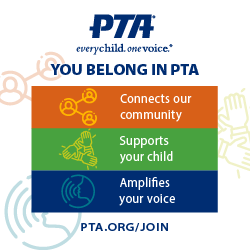Kids are incredibly perceptive—some of the most powerful things they learn come from what they observe in everyday life. Taking the time to teach them life lessons as they grow up will help them to become successful adults. Let’s look at how we can turn everyday conversations into teachable moments about finances.
1. Careers
“I’m not good at anything.”
This can be devastating to hear from your child, but insecurities are a normal part of growing up. Use this as an opportunity to talk to your child about areas where they excel. Are they good at art? Do they participate in STEM activities? Are they a good friend, great at organization, a hard worker? Find opportunities to encourage their abilities and help them identify their future career opportunities.
2. Family Life
“Why does Emily have to go to the babysitter after school?”
While your initial response may be to simply say, “Because both of her parents work,” go a little further by talking about family choices. Discuss why your family has made certain decisions when it comes to marriage, children and work. Describe the financial implications of those decisions.
3. Homeownership
“Why do I always have to mow the lawn?”
Suppress a knee-jerk, “Because I said so!” and talk to your child about the opportunities afforded to homeowners. Having a private backyard and lawn to play on is something your family may consider a benefit. Other families may live in an apartment where the yard is maintained by a landscaper, but the area is shared with your neighbors.
4. Cars
“Your car always breaks down, just get a new one.”
Resist the urge to scream. A great teaching moment has just presented itself. Talk to your child about the pros and cons of leasing, or buying a new or used car. Describe the process of saving up to buy a car you can afford.
5. Health & Wellness
“Why do you get up early to exercise?”
Share how taking care of yourself is likely to help avoid expensive health problems in the future. Teach your children about the unseen costs of health care, such as deductibles and copayments, as well as payroll deduction.
6. Entertainment and Dining Out
“I love eating at this restaurant! Why can’t we eat here all the time?”
Let your kids get involved in planning your nights out, vacations and other family events. They will be more apt to save for special occasions if they are part of the planning process. Help them understand the expenses involved with travel, such as eating at a fast-food restaurant versus a sit-down restaurant, or the price of buying tickets for various kinds of entertainment.
7. Budgeting and Saving
“I want this… [insert toy/game/clothing item]. All of my friends have it.”
Most kids will say something like this as you’re rushing through your list so you can get out of the store and onto the next agenda item for the day. As
you are checking out and heading to the car, explain the concept of delayed gratification. Teach them that they may have to give up going to the movies or having their favorite dessert to save money for their desired item.
Don’t wait until your child earns their first paycheck to teach them about money management. These conversations will stay with them and serve as key principles for making smart money decisions throughout their lives.
[infobox maintitle=”Want more on this topic?” subtitle=”Get Warren Buffet’s tips to raising a money-conscious child ” bg=”blue” color=”black” opacity=”off” space=”30″ link=”https://ptaourchildren.org/warrent-buffet-child-finance-tips/”]
Kimberly Boettcher is the financial education manager at Mountain America Credit Union.


















